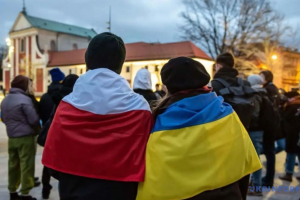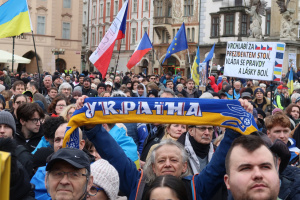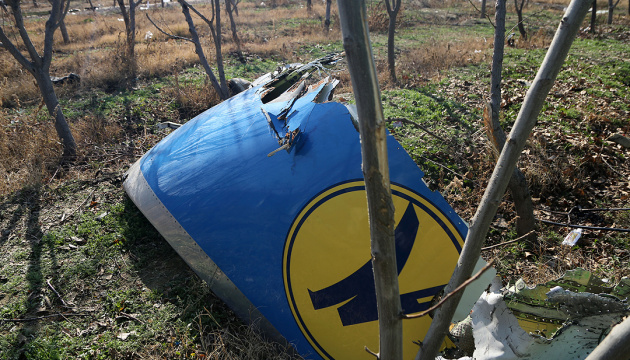
Plane crash near Tehran: Our goal is to establish justice, not to humiliate Iran
January 8, 2022 marked two years since the downing in Iran of a Ukrainian Boeing 737-800 with 176 people on board. On January 8, 2020, a passenger jet owned by Ukraine International Airlines was shot down by missiles fired by the Iranian military from the Islamic Revolutionary Guard Corps (IRGC).
Ukraine and the International Coordination and Response Group for the Victims of Flight PS752, which includes the foreign ministers of Canada, Sweden, Ukraine and the United Kingdom, have had difficult talks for two years with the Iranian side in a bid to investigate the causes of the disaster, qualify the actions of perpetrators, bring them to account, and to pay compensation to the victims' families and to Ukraine. On January 8, 2022, the Iranian side named lower-ranking IRGC personnel involved in the downing of the plane, who are charged with negligence, carelessness and improper performance of official duties. At the same time, Iran told Canada, Sweden, Ukraine and Britain that it was refusing to hold further talks on the crash of the Ukrainian plane.
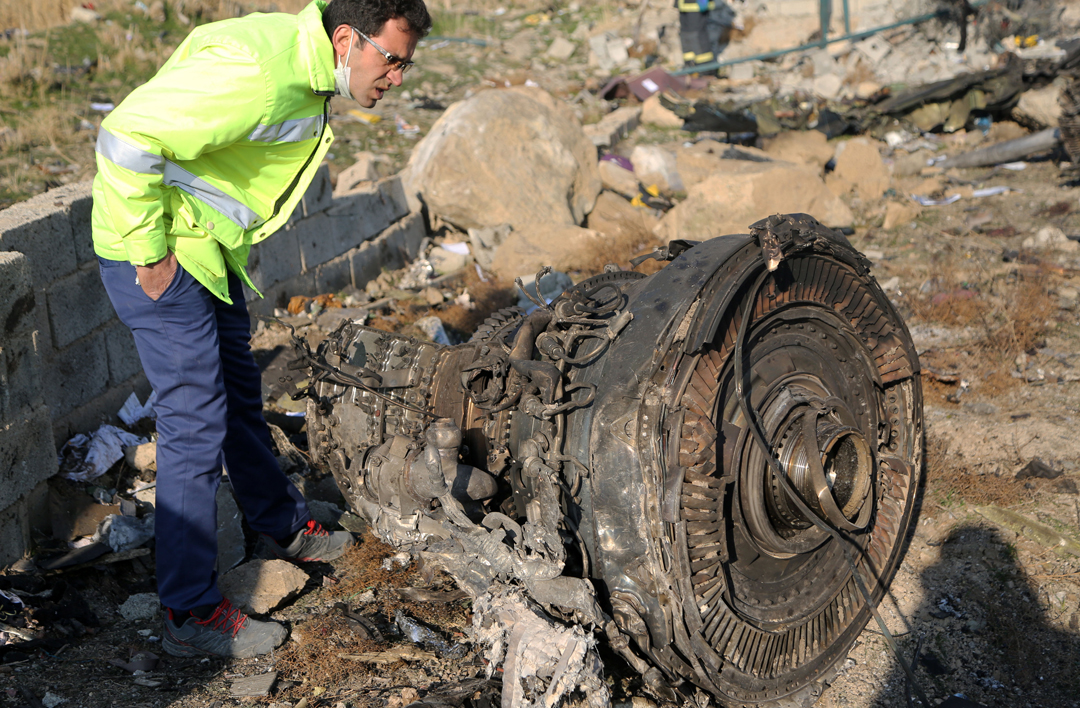
Photo: AA
Emine Dzheppar, First Deputy Minister of Foreign Affairs of Ukraine, shared with Ukrinform her notes on the achievements of Ukraine and the International Coordination and Response Group for the Victims of Flight PS752 and the course of negotiations with the Iranian side.
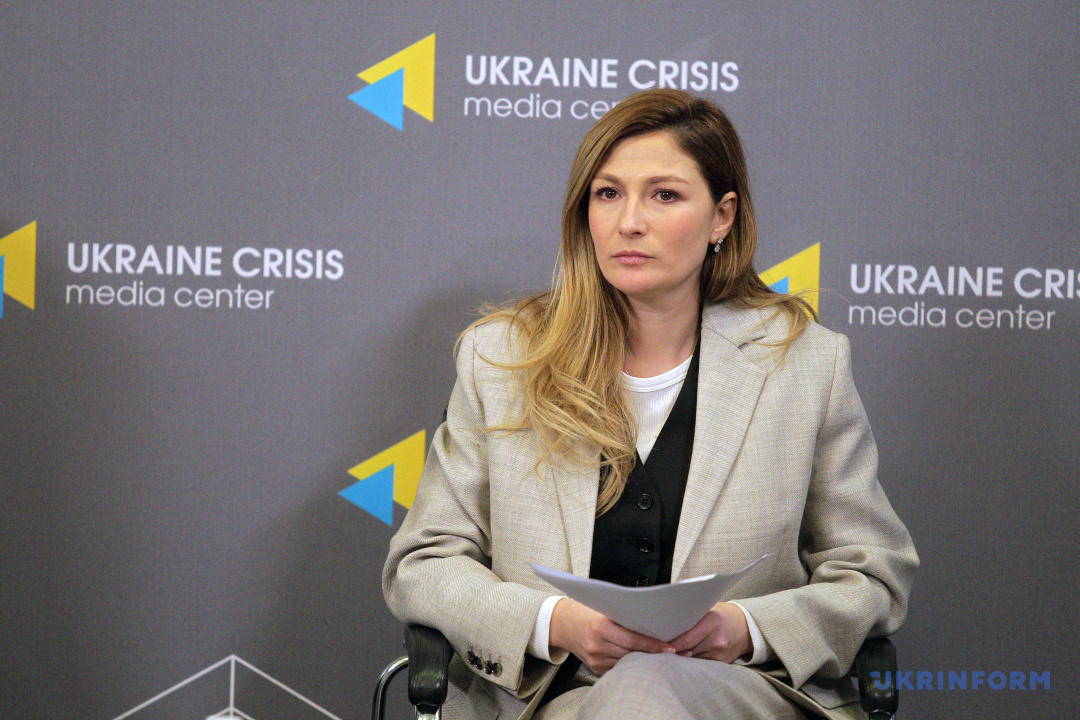 Emine Dzheppar
Emine DzhepparTHREE ROUNDS OF GRUELING TALKS
Today, two years after the crash, if we evaluate the work done by Ukraine, the activities of the International Coordination and Response Group for the Victims of Flight PS752, if we summarize how much we have achieved during this time, in my opinion, we've done a lot, but much less than I would like us to do.
In particular, we held three rounds of bilateral interstate talks between Ukraine and Iran - difficult and exhausting talks - both in terms of international law and in terms of morality.
There are a number of issues that concern only Ukraine and Iran, and this was the subject of bilateral talks. In particular, we are talking about a technical investigation into the plane crash under the Convention on International Civil Aviation of 1944 (also known as the Chicago Convention). In addition, Ukraine is the only country, along with Iran, that opened criminal proceedings over the downing of the plane. Both the bilateral treaty on legal relations and legal assistance in civil and criminal matters of 2004 and the 1971 Convention for the Suppression of Unlawful Acts against the Safety of Civil Aviation (also known as the Montreal Convention) come into force here.
All these conventions give Ukraine broad rights to investigate the aviation aspects of the disaster and oblige Iran to provide maximum assistance to Ukraine in the criminal investigation.
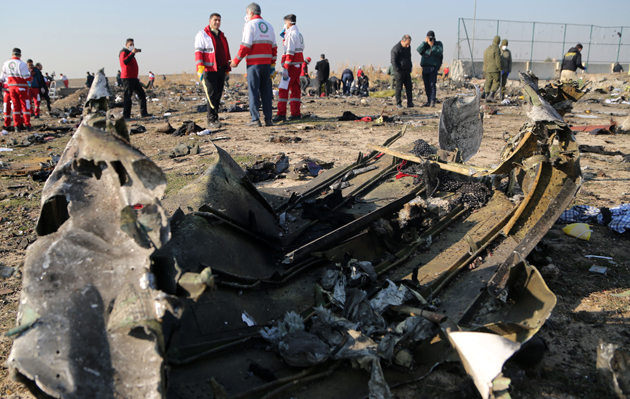
Photo: AA
At the same time, this negotiation process revealed significant differences between the positions of the parties. We did not find answers to a number of questions, both about the specific circumstances of the downing of the plane and about the norms of international law that countries should be guided by in this situation. Moreover, the level of law enforcement cooperation has been unsatisfactory from the very beginning.
On a parallel track, the countries affected by the disaster united their efforts and formed the Coordination Group. This is due to the need to involve in the negotiations the authorized representatives of all countries, without exception, whose citizens were on board the aircraft. This is should ensure equal treatment in the payment of compensation to all families of the victims, regardless of their nationality.
Unfortunately, despite repeated requests to hold multilateral talks with Ukraine, Canada, Sweden and the United Kingdom, Iran does not consider this option acceptable. Obviously, the Coordination Group has no choice but to use other tools and procedures to address this situation.

Photo: AA
Today, we are on the right track to establish all the circumstances of the downing of our plane, punish the perpetrators and ensure the recognition by Iran of its international legal responsibility and the payment of appropriate compensation to all affected parties. The ancient Romans said 'quidquid latet apparebit, nil inultum remanebit,' which means 'all hidden things will be revealed, nothing will remain unavenged.'
IRAN SEES MULTILATERAL FORMAT AS UNACCEPTABLE
If we evaluate the situation on each of the three tracks on which the Boeing crash case is progressing, I will note the following.
On the track of the technical investigation, in February 2021, Iran released its final report on the results of the aviation investigation into the circumstances of the crash. The draft of this document, among other things, was actively discussed during our bilateral meetings.
In particular, the draft final report was submitted for consideration by Ukraine. We provided about 90 pages of comments and remarks, which were limited to the need to continue the investigation and establish all circumstances without exception. Iran, in turn, took into account only a few minor remarks, such as changing the spelling of "Kiev" to "Kyiv."
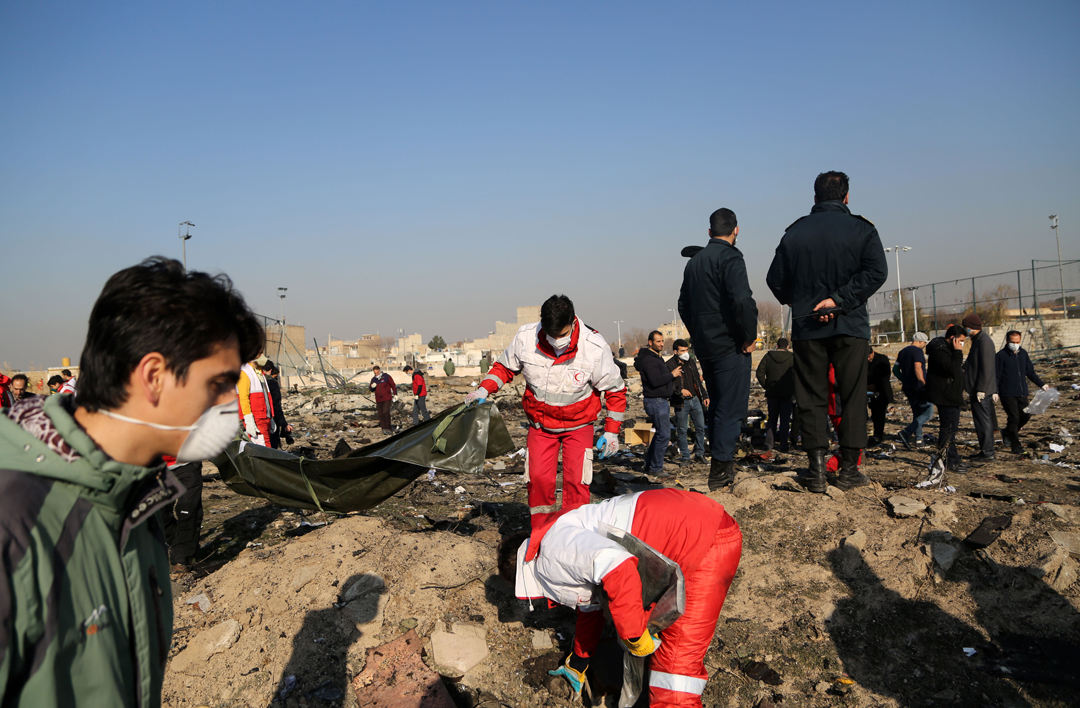
Photo: AA
If we sum up the content of the final report, Iran concludes that the Ukrainian plane was shot down due to "human error" and does not consider any other versions. This is absolutely unacceptable for us.
This was the basis for public criticism of the report by Ukraine and Canada, as it does not contain any analysis of the chain of events that led to the so-called "error" or any indication of ways to prevent similar "errors" in the future.
The Chicago Convention states that the technical investigation, in addition to establishing the circumstances of the disaster, has a very clear preventive purpose - under no circumstances should similar things happen in the future. In view of the above, we consider the criticism of the final report to be constructive and the report itself to be inconsistent with the requirements of the Chicago Convention. The Coordination Group is currently examining the appropriateness of raising the issue of non-compliance of the final report with the requirements of the Chicago Convention within the framework of the mechanisms of the International Civil Aviation Organization (ICAO). The whole civilized world must be interested in preventing such a tragedy from happening again.
Now, on the second track -- the criminal investigation. Here, of course, Iran has more opportunities than Ukraine. Since any investigation involves gathering evidence to establish legally significant circumstances, such evidence is in Iran, where the disaster occurred.
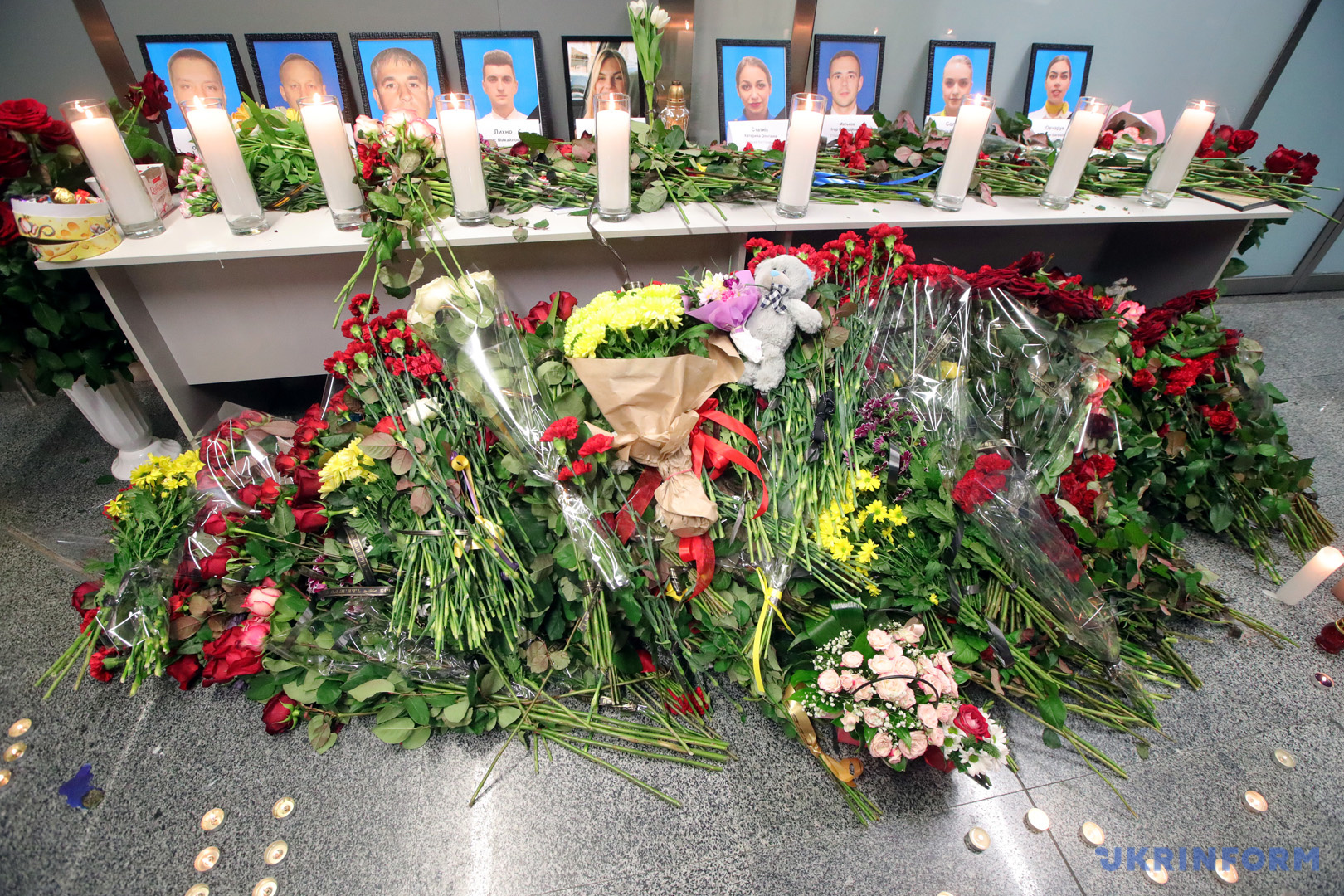
Despite this, Ukraine, as already mentioned, is conducting its own criminal investigation. In such an investigation, Iran is obliged to provide legal assistance to Ukraine under the aforementioned legal aid treaty and the Montreal Convention. At the same time, Iran constantly refers to the secrecy of the requested information due to its belonging to military secrets.
In the latest round of talks held in June 2021, Iran informed us that they had brought to court the cases against ten individuals guilty of actions that deserve punishment and probably led to the downing of the plane. However, the Iranian side has not officially disclosed any names, positions or essence of the charges. And this deprived further bilateral negotiations on legal cooperation of any meaning.
We, as well as other countries from the Coordination Group, consider such actions by Iran to be a violation of obligations under the Chicago and Montreal Conventions. In fact, this determines our logic of action on the international legal track. However, as I have already mentioned, as of today, Iran considers the multilateral format of negotiations unacceptable. Therefore, further international legal steps are being agreed upon by the four countries within the framework of the mechanisms envisaged by both conventions. If necessary, we are ready to appeal to the International Court of Justice. However, we hope that Iran will change its position to a more constructive one.
COMPENSATION OFFERED BY IRAN IS MISLEADING THE INTERNATIONAL COMMUNITY
Now on the compensation. The Coordination Group has stated from the very beginning that it will discuss compensation in a multilateral format in order to ensure equal treatment of all victims of the disaster, regardless of their nationality. We have constantly reminded Iran of this during each of the three bilateral rounds.
We believe that Iran sees the issue of compensation as the final step that needs to be taken to turn over the last page of this story. To this end, Iran is trying to create the circumstances in which it can say that all the requirements imposed on the country by international law have been met: the final report has been published, a criminal investigation has been conducted, and compensation to families has been offered. Everything is closed, let's move on.
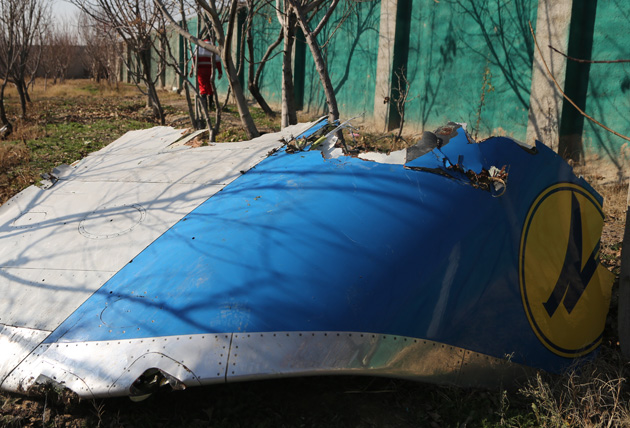
Photo: AA
In view of this, the Coordination Group has to constantly remind Iran that there were 90 pages of unaccounted remarks to the final report and the criminal investigation was not transparent, leading to the conclusion that ten unknown persons were chosen as scapegoats, and the compensation Iran offers to the families of the victims is misleading the international community. It is on this aspect of compensation that I will dwell in more detail.
In January 2021, the Government of Iran unilaterally decided to make so-called ex gratia payments (given as a favor or from a sense of moral obligation rather than because of any legal requirement) to the families of those killed in the plane crash in the amount of $150,000. The Iranian side asked some countries from the Coordination Group, including Ukraine, to inform the victims' families about this decision. We immediately granted this request, stating, however, that we are unaware of any further procedure, what documents need to be submitted, or how to act if the families are not satisfied with the amount of compensation. It was up to the families to accept this money or not, and we have not and will not influence it in any way.
This position by Ukraine is due to the fact that Iran has international legal responsibility for the downing of the plane to the states of the Coordination Group, and not to the families. Indeed, a number of previous plane crashes have resulted in families receiving compensation. But the initial payments were made to the affected states. And it was the affected states in the negotiation process that settled all the necessary issues -- starting from where to apply to, what documents to submit, and how much a family can count on. That is, all issues aimed at facilitating the further life of the affected families were resolved in advance. There is nothing new here, these are the requirements of international law, and it is in this way that similar incidents in the past have been resolved.
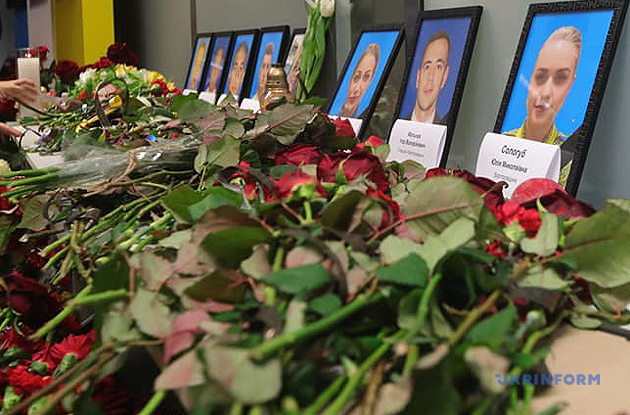
Instead, we see that Iran is using all means at its disposal, including threatening families who refuse money, in order, on the one hand, to demonstrate its obedience to the international community and, on the other hand, to accuse the Coordination Group of allegedly "politicizing" the negotiation process.
In addition, the payment of compensation to the families of the victims, although a necessary step, cannot be the only measure of responsibility for Iran. Otherwise, it will seem that the cost of human life has a clear monetary value, and may become a predetermined amount of "pay-off" for subsequent disasters. This is unacceptable for the civilized world.
Therefore, the families of the victims can try to receive ex gratia payments in the amount of $150,000 at any time. As for the compensation that Iran owes the state of Ukraine, it depends on the development of events on the international legal track.
OUR GOAL IS TO ESTABLISH JUSTICE
In general, according to a statement issued by the Ministry of Foreign Affairs of the Islamic Republic of Iran on the eve of the second anniversary of the tragic crash of the Ukrainian plane on January 7, Iran refused to hold a multilateral negotiation process, citing "politicization" by some countries from the Coordination Group. At the same time, Iran has expressed its readiness to negotiate with some of the states involved in a bilateral format. We believe that such a step is aimed at destroying the unity within the Coordination Group. We know the principle according to which an elephant should be eaten one bite at a time. That is why the statement about unshakable unity within the Coordination Group is one of the first ones announced during personal and virtual summits.
We are convinced that if Iran agrees to hold negotiations with the Coordination Group, we will be able to reach the necessary consensus and really turn over this page.
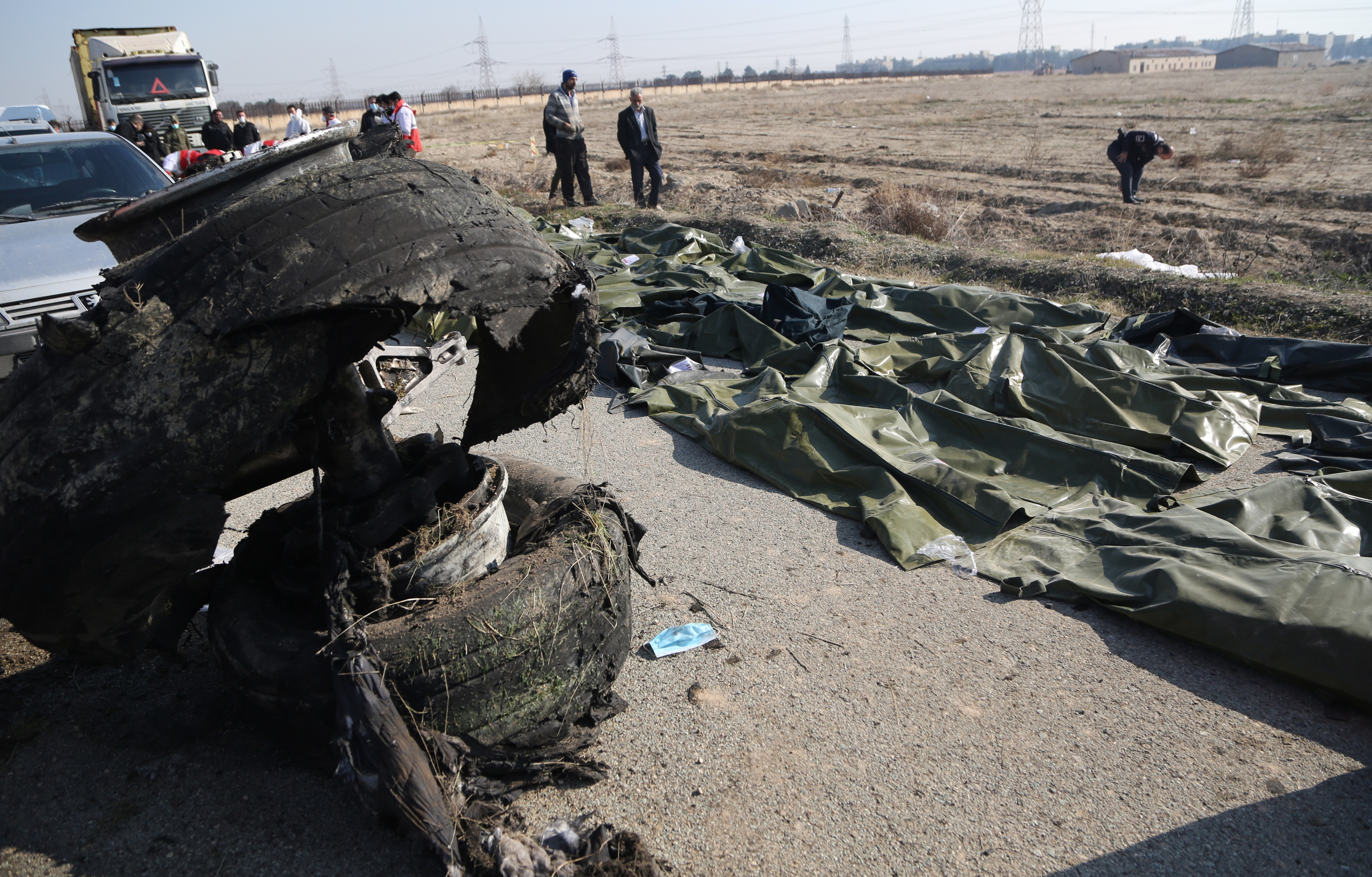
Photo: AA
Our goal is not to humiliate Iran or make inadequate demands. Our goal is to establish justice, including a fair amount of compensation. It is the responsibility of the governments of all the Coordination Group states to the families of those killed in this terrible catastrophe, and we will resolutely walk this path to the end.
DISPUTE MAY CONTINUE IN INTERNATIONAL COURT
However, in view of Iran's refusal to negotiate in a multilateral format, the affected states decided to resort to other means of bringing Iran to international responsibility and ensuring compensation for the damage caused.
In particular, Article 84 of the Chicago Convention provides for a dispute settlement mechanism in which any disagreement over the interpretation or application of the Convention between the Contracting States that is not resolved through negotiations will be resolved by the ICAO Council.
At the same time, Article 14 of the Montreal Convention provides for a dispute settlement mechanism in which any dispute between two or more Contracting States concerning the interpretation or application of this Convention which is not settled by negotiation may, at the request of one of the parties, be submitted to arbitration. If the Parties have reached no agreement on the organization of the arbitration within six months from the date of the request, the dispute may be referred to the International Court of Justice at the request of either Party.
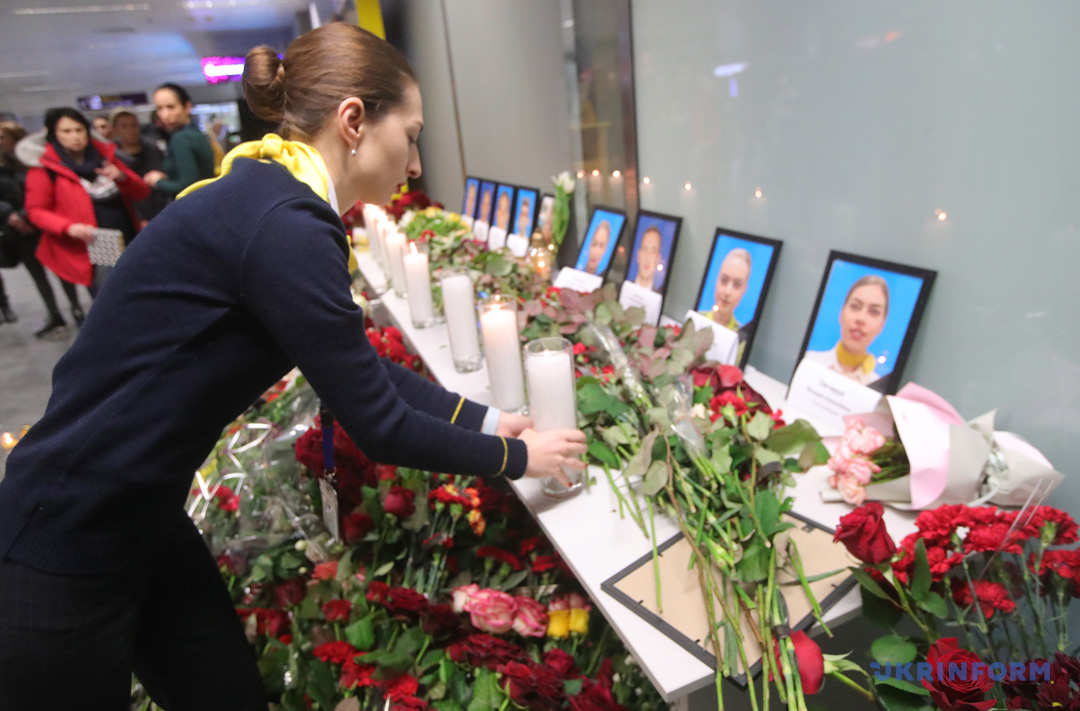
These provisions of the Conventions are our guide, which requires the development of a concrete plan of diplomatic and legal action. The work of the Coordination Group is now focused on the coordination of such an action plan.
Despite the fact that the consideration of disputes in international courts is a long process, the careful and thoughtful preparation of the plan is the key to achieving the legal result, on which a huge team of Ukrainian and foreign experts involved is focused at the moment.
No matter how long it takes, no one will be forgotten and no one will be left alone with their grief.
Emine Dzheppar, First Deputy Minister of Foreign Affairs of Ukraine
Exclusively for Ukrinform
First photo: AA

